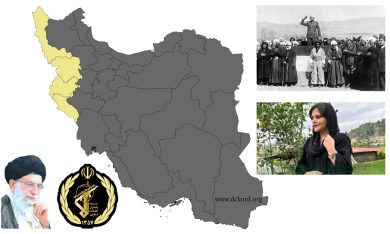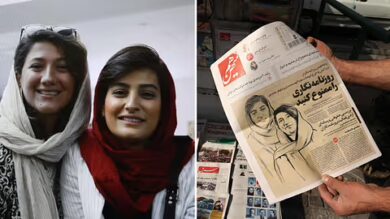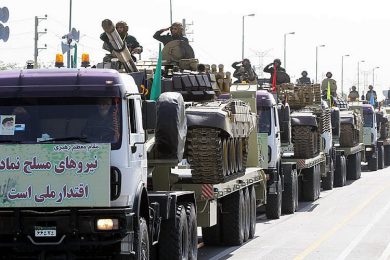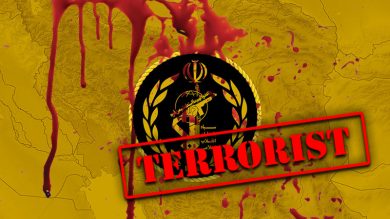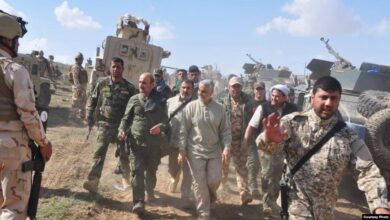The Islamic Revolutionary Guard Corps (IRGC) wields unparalleled influence in Iran, extending far beyond its military role. Over the decades, it has developed a sprawling economic empire, infiltrating almost every sector of Iran’s economy. From oil and gas to construction, telecommunications, and transportation, the IRGC’s reach is vast, enabling it to generate billions of dollars annually. However, this economic dominance has come at a steep cost to ordinary Iranians, perpetuating corruption, stifling private enterprise, and funding the regime’s repression at home and destabilizing activities abroad.
This report examines the structure of the IRGC’s economic empire, how it fuels corruption and repression, and its impact on Iran’s economy and society.
1. The Foundation of the IRGC’s Economic Empire
A. Origins of Economic Power
The IRGC was founded in 1979 after the Islamic Revolution, initially tasked with protecting the new regime and advancing its revolutionary ideals.
During the Iran-Iraq War (1980–1988), the IRGC gained access to state resources to support its military operations, laying the groundwork for its economic activities.
B. Expansion Through Privatization
Under President Mahmoud Ahmadinejad (2005–2013), privatization initiatives allowed IRGC-affiliated companies to acquire state-owned enterprises at discounted prices.
This period saw the IRGC’s economic footprint grow exponentially as it took over key industries.
2. Key Sectors Controlled by the IRGC
A. Oil and Gas
The IRGC has significant control over Iran’s oil and gas sector, including extraction, refining, and distribution.
It operates through subsidiaries and front companies to bypass international sanctions, smuggling oil and generating illicit revenue.
B. Construction and Infrastructure
The IRGC’s engineering arm, Khatam al-Anbiya Construction Headquarters, dominates Iran’s construction industry.
It secures lucrative government contracts for roads, dams, pipelines, and ports without competitive bidding.
Despite its size, many IRGC-led projects are inefficient, over-budget, or incomplete due to corruption and mismanagement.
C. Telecommunications
The IRGC controls significant portions of Iran’s telecommunications infrastructure, including mobile networks and internet providers.
This control allows it to generate revenue while simultaneously monitoring and suppressing dissent.
D. Smuggling and Black Market Activities
The IRGC runs extensive smuggling operations, moving oil, fuel, and luxury goods across borders to evade sanctions.
These activities generate billions annually, further entrenching the IRGC’s economic dominance.
3. How the IRGC’s Economic Power Fuels Corruption
A. Monopolization and Favoritism
The IRGC’s control over key industries discourages competition and innovation.
Contracts are often awarded to IRGC-affiliated companies without transparency, perpetuating corruption and inefficiency.
B. Mismanagement of Resources
Many IRGC-controlled enterprises prioritize profit over quality, leading to poorly executed infrastructure projects and wasted public funds.
C. Exploitation of Sanctions
While sanctions are designed to weaken the regime, the IRGC exploits them to consolidate its control over smuggling networks and black-market operations.
Ordinary Iranians suffer as the IRGC profits from sanctions-induced shortages of goods.
4. Funding Repression and Proxy Wars
A. Suppression of Domestic Dissent
The IRGC uses its economic power to fund its Basij militia and other security forces that violently suppress protests and dissent.
Resources are allocated to surveillance technologies, internet blackouts, and mass arrests, targeting activists, journalists, and minorities.
B. Support for Regional Proxies
The IRGC channels its economic resources to fund groups like Hezbollah, Hamas, and the Houthis.
These activities destabilize the Middle East, contributing to prolonged conflicts and humanitarian crises.
5. The Impact on Ordinary Iranians
A. Economic Hardship
While the IRGC enriches itself, ordinary Iranians face rising inflation, unemployment, and economic instability.
The monopolization of industries by the IRGC has stifled private sector growth, reducing job opportunities and wages.
B. Public Services and Infrastructure
Funds that could be used for healthcare, education, and infrastructure are diverted to IRGC-controlled projects and military operations.
Poor-quality infrastructure, including roads and dams, has had long-term consequences for communities.
C. Inequality and Corruption
The IRGC’s wealth and privileges contrast starkly with the economic struggles faced by most Iranians.
Corruption and nepotism within IRGC-controlled sectors further deepen inequality.
6. International Sanctions and the IRGC’s Resilience
A. Sanctions Targeting the IRGC
The U.S., European Union, and other countries have imposed sanctions on IRGC-affiliated entities and individuals to disrupt their financial networks.
These measures target IRGC-controlled sectors like oil, construction, and telecommunications.
B. Evasion Tactics
The IRGC uses front companies, smuggling, and cryptocurrency to bypass sanctions and maintain its revenue streams.
Weak enforcement of sanctions in certain regions enables the IRGC to continue its activities with impunity.
7. Recommendations for Countering the IRGC’s Economic Influence
A. Strengthen Sanctions Enforcement
Enhance international coordination to track and dismantle IRGC-affiliated financial networks and front companies.
Close loopholes that allow smuggling and illicit trade.
B. Support for Iranian Civil Society
Empower Iranian activists and independent organizations to expose corruption and demand greater transparency.
Provide tools and resources to bypass censorship and monitor IRGC activities.
C. Promote Economic Reforms
Advocate for policies that reduce the IRGC’s monopolistic control and encourage private sector growth.
Support initiatives that promote entrepreneurship and innovation among Iranian citizens.
Conclusion
The IRGC’s economic empire is a cornerstone of its power, funding repression at home and destabilization abroad. While the IRGC enriches itself through corruption, smuggling, and monopolization, ordinary Iranians face mounting economic hardships and inequality. Addressing the IRGC’s economic influence requires coordinated global efforts, including stronger sanctions enforcement, support for Iranian civil society, and advocacy for economic reforms. By dismantling the IRGC’s economic empire, the international community can help pave the way for a more just and prosperous future for the Iranian people.
Join Our Newsletter!
Stay informed with the latest updates, news, and ways to take action in the fight for justice and global security. Sign up now to get updates delivered straight to your inbox!

